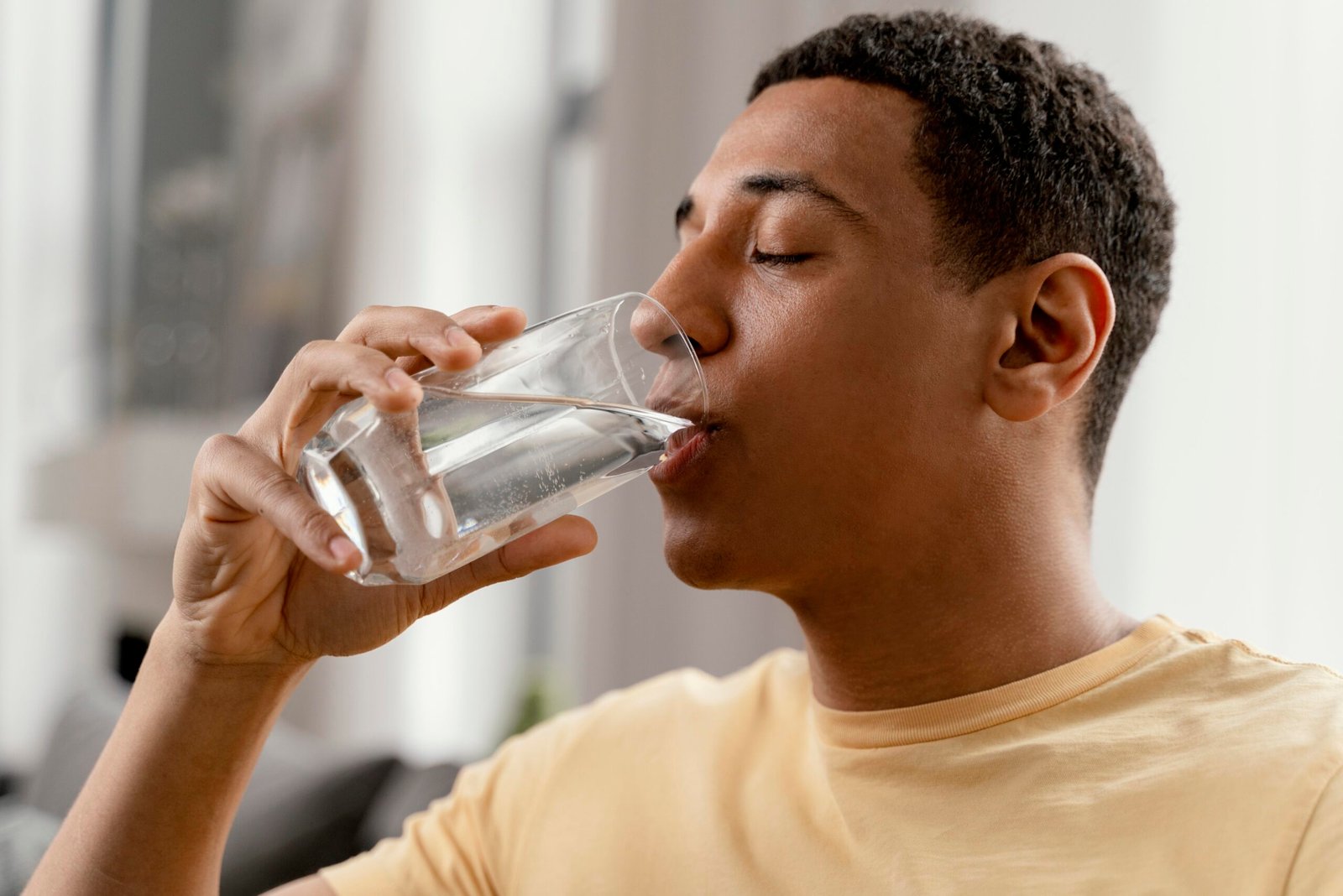Who is at risk of dehydration?
The risk of dehydration affects everyone. No factor protects a person from this risk. However, the “extreme” ages of life require special attention:
- Infants are particularly susceptible to dehydration. The condition can quickly become fatal. This is due to:
- To their inability to communicate and hydrate themselves
- To the immaturity of their hydro-electrolytic regulation system
- Over the years, older people lose their sense of thirst and sometimes take medications that can increase their risk. These medications also require close monitoring during high-risk situations (such as heat waves).
What causes dehydration?
Dehydration is the result of a mismatch between the body’s water needs and the water it receives. This mismatch between “supply” and “demand” can result from:
- Insufficient intake: When a person does not drink or eat enough (food also contains water)
- An increase in losses: extreme heat, prolonged exertion (excessive sweating), particularly in direct sunlight, infectious episodes (fever, diarrhea, vomiting, etc.), severe burns, etc.
- The action of certain medications (particularly diuretics) is widely used in the treatment of heart failure. Their specific role is to increase daily urine volume.
What are the main symptoms?
The main symptom that presents most quickly is THIRST! If you have already felt thirsty and the need to drink, it is because you have already been dehydrated (moderately, probably). Subsequently, this sensation can become intense and unpleasant. It can be accompanied by symptoms similar to those of a fever with headaches, sweating, and/or dizziness. Very quickly, the body will try to adapt by reducing the quantity of urine. This will become darker. At this stage, it becomes urgent to act because subsequently, neurological signs can set in (confusion, disturbances of consciousness, convulsions). Nausea or even vomiting can accompany these signs. This will worsen the situation and prevent any rehydration by the person. In the absence of rapid medical treatment, the progression then leads to coma and then death.
How to react well before it’s too late?
Simple measures can help combat dehydration and prevent it from occurring. Prevention messages have multiplied in recent years during deadly heat waves. However, it’s worth reiterating them here:
- Even in the absence of obvious risk factors, regular hydration is essential. You should not wait until you are thirsty to drink. A minimum of 1.5L of water per day, all inclusive (tea, coffee, etc.), is required.
- In case of extreme heat, increase the quantity of water and cool your living space (closed shutters, use of misters, suitable clothing, no direct exposure to the sun, etc.)
- During a fever, it’s important to cover up as much as possible, even if your body is shivering. Beliefs like ” sweating to eliminate germs ” are completely false and dangerous. Increase the amount you drink: water loss through sweating is greater.
- In case of gastrointestinal symptoms such as diarrhea and/or vomiting, fractional hydration helps to combat losses (one teaspoon of water every 5 to 10 minutes). If these symptoms occur in an infant (under 3 years old) or an elderly person, early medical advice and frequent reassessment are required (monitoring of weight and other clinical signs of dehydration)
- During periods of intense heat or during the hottest hours of the day, avoid sports. BEFORE, DURING, and AFTER exercise, hydrate yourself properly. Choose suitable drinks that provide mineral salts (lost through perspiration). Equipment adapted to the weather conditions is also necessary.
- Patients receiving diuretic therapy (for heart failure or high blood pressure) should discuss with their doctor whether or not it is necessary to continue the drug treatment or to temporarily adjust the dosage.
- The consumption of alcoholic beverages is not recommended: it causes dehydration (the famous ” hangover” ).























+ There are no comments
Add yours